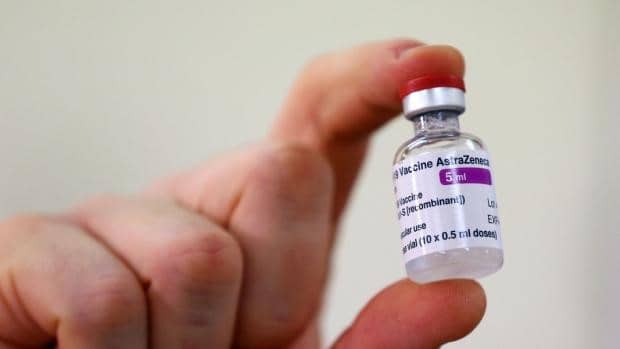Updated information is being provided for people and healthcare professionals on the possible risk of extremely rare and unlikely to occur specific types of blood clots following vaccination with the COVID-19 Vaccine AstraZeneca, the Medicines and Healthcare products Regulatory Agency (MHRA) said today.
The MHRA has undertaken a thorough review into UK reports of a very rare and unlikely to occur specific type of blood clot in the brain, known as cerebral venous sinus thrombosis (CVST) occurring together with low levels of platelets (thrombocytopenia) following vaccination with the COVID-19 Vaccine AstraZeneca. It is also considering other blood clotting cases (thromboembolic events) alongside low platelet levels.
These reports have been analysed by the Government’s independent advisory body, the Commission on Human Medicines (CHM) and its COVID-19 Vaccines Benefit Risk Expert Working Group, which includes lay representatives and advice from leading haematologists.
Up to and including 31 March 2021, the MHRA had received 79 UK reports of blood clotting cases alongside low levels of platelets following the use of the COVID-19 Vaccine AstraZeneca:
- 44 of the 79 cases were of CVST with thrombocytopenia
- 35 of the 79 cases were of thrombosis in other major veins with thrombocytopenia
- 79 cases occurred in 51 women and 28 men, aged from 18 to 79 years. It should be noted that more women have been vaccinated with COVID-19 Vaccine AstraZeneca than men.
- Sadly, 19 people have died out of the 79 cases – 13 females and 6 males. Eleven out of the 19 people who died were under the age of 50, three of whom were under 30. Fourteen of these 19 cases were of CVST with thrombocytopenia and 5 were of thrombosis with thrombocytopenia.
- All 79 cases occurred after a first dose of the vaccine.
This risk, based on reports up to and including 31 March, is slightly higher than the risk calculated from the reports published up to and including 24 March. However, likelihood of these blood clots occurring is still extremely rare.
As a precaution, administration of COVID-19 Vaccine AstraZeneca in people of any age who are at higher risk of blood clots because of their medical condition should be considered only if benefits from the protection from COVID-19 infection outweighs potential risks.
Anyone who experienced cerebral or other major blood clots occurring with low levels of platelets after their first vaccine dose of COVID-19 Vaccine AstraZeneca should not have their second dose. Anyone who did not have these side effects should come forward for their second dose when invited.
Pregnancy predisposes to thrombosis, therefore women should discuss with their healthcare professional whether the benefits of having the vaccine outweigh the risks for them.
The MHRA recently confirmed that the evidence to date does not suggest that the COVID-19 Vaccine AstraZeneca causes venous thromboembolism without a low platelet count.
It is important to note that this type of blood clot, together with lowered platelet, can rarely occur naturally in unvaccinated people, as well as in people with COVID-19 disease.
While the MHRA continues to investigate these cases, as a precautionary measure, anyone who has symptoms four days or more after vaccination is advised to seek prompt medical advice, such as:
- a new onset of severe or persistent headache, blurred vision, confusion or seizures
- develop shortness of breath, chest pain, leg swelling or persistent abdominal pain,
- unusual skin bruising or pinpoint round spots beyond the injection site
Dr June Raine, MHRA Chief Executive, said:
“Over 37 million doses of vaccines against COVID-19 have now been administered in the UK, saving thousands of lives through the biggest vaccination programme that has ever taken place in the UK.
“No effective medicine or vaccine is without risk. We continually monitor safety during widespread use of any vaccine. This is to ensure vaccines are performing as expected, to identify any new side effects that may arise, and to ensure the benefits continue to outweigh the risks.
“The public’s safety is always at the forefront of our minds and we take every report of a suspected side effect very seriously indeed. We thoroughly analyse each and every report as we receive it and although the number of reports of CVST and other thromboembolic events has increased over the last week, so has the overall number of vaccinations administered, therefore these blood clots remain extremely rare and unlikely to occur.
“We ask anyone who suspects they have experienced a side effect linked with their COVID-19 vaccine to report it to the Coronavirus Yellow Card website.
“It is still vitally important that people come forward for their vaccination when invited to do so.”
Professor Sir Munir Pirmohamed, Chair of the Commission on Human Medicines, said:
“The independent Commission on Human Medicines (CHM) and its
COVID-19 Expert Working Group , together with leading haematologists, has conducted a rigorous scientific analysis of all available evidence regarding reports of thromboembolic events occurring together with low platelets and COVID-19 Vaccine AstraZeneca and usage of the vaccine in different age groups.
“We have a rich source of data – the best data there is – and the MHRA and CHM will continue to keep this under close observation. The public deserve nothing less.”


